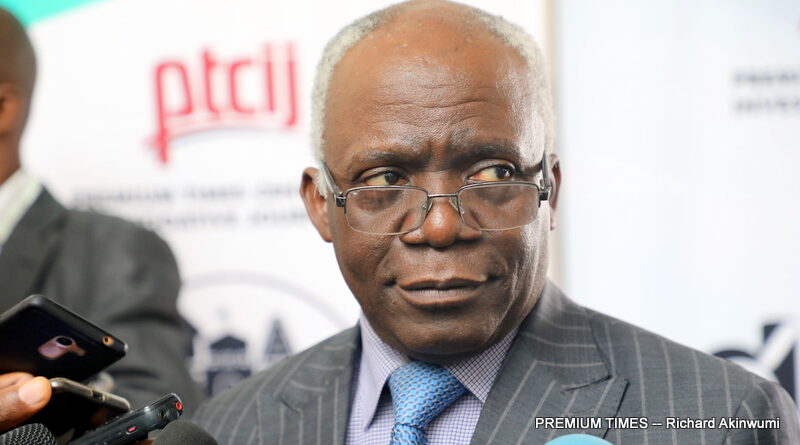Femi Falana: Health Insurance Now a Right for Nigerians
Human rights lawyer, Femi Falana (SAN), has reaffirmed that every Nigerian is now legally entitled to compulsory health insurance following the enactment of the National Health Insurance Authority (NHIA) Act, 2022.
Falana explained that the new law repealed the National Health Insurance Scheme Act of 2004, which had failed to deliver broad population coverage. He described the 2022 Act as a “major policy and legal shift” toward making universal health coverage a reality.
The NHIA Act mandates the provision of a Basic Minimum Package of Care for all Nigerians and establishes a Vulnerable Group Fund to subsidize healthcare for children under five, the elderly, pregnant women, and people living with disabilities. It also requires state governments to set up their own health insurance schemes or partner with third-party administrators until such structures are in place.
To enforce compliance, President Bola Tinubu in September 2025 directed all Ministries, Departments, and Agencies (MDAs) to enrol employees under the NHIA. Entities bidding for government contracts must now present a valid Health Insurance Certificate, while the Secretary to the Government of the Federation has been empowered to monitor compliance.
Read Also: Debate Deepens Over Federal Government’s Rule Linking Research Projects to NYSC
Falana noted that the Act obliges both federal and state governments to provide health insurance for vulnerable groups, fully funded by government allocations. He stressed that this obligation aligns with Section 17(3)(d) of Nigeria’s Constitution, which guarantees adequate health facilities for all citizens, and Article 16 of the African Charter on Human and Peoples’ Rights, which assures the highest attainable standard of health.
Despite these legal guarantees, Falana lamented that over 90 per cent of Nigerians remain outside the health insurance net, largely due to poverty. He urged governments at all levels to prioritise funding, given that millions of citizens now fall within the category of the “indigent and vulnerable.”
The NHIA is expected to play a regulatory role by overseeing both public and private health insurance schemes, ensuring supervision, transparency, and broader access. A digital verification platform has also been introduced to prevent forgery of insurance certificates.
Falana concluded that the law’s ultimate aim is to ensure that every Nigerian, regardless of economic status, has access to affordable, quality healthcare — a step he described as both a constitutional and moral duty of the government.
Content Credit | Olaoluwa Ayomide
Image Credit | premiumtimesng.com




